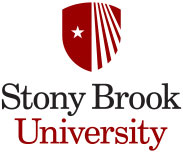Teaching

Courses taught at Molloy University
ENV1010 Introduction to Environmental Issues
This course is an introduction to the principles of environmental issues. Content will include an overview of global conditions such as carrying capacity, population trends, agricultural issues, energy issues, water and air pollution and hazardous waste.
ENV 1020 Foundations of Earth Systems Science
The Earth functions as a set of interacting components from the lithosphere, hydrosphere, biosphere, and atmosphere. In this course, students will learn what is meant by a systems approach to earth and environmental sciences and how the Earth systems are a large set of cooperative, self-regulating processes driven by thermodynamics. The course will also discuss how these processes contributed to early evolution of life on the planet and how modern day processes such as climate change are impacted or amplified by natural feedbacks.
ENV 2250 Air and Water Pollution
An introduction to the basic principles of pollution. Students will discuss pollution issues from local to global scales, learn how these have been handled historically, and gain an appreciation for emerging contaminants. The course will focus on the transport and impacts of pollution in ecosystems, and how scientific studies are used to improve environmental conditions. 3 hours lecture weekly.
ENV2570 Scientific Research Techniques
Writing-Intensive Course. A study of scientific research tools including utilization of library resources, data collections, statistical interpretation of data and skilled scientific writing. Literature research in ENV2570 is a prerequisite for research undertaken in ENV4800.
ESC2340 Oceanography
The fundamental physical, chemical, biological, and geological properties that shape the oceans are examined, with emphasis on how processes interact to create the underlying oceanic phenomena that we observe today.
ESC 2320 Physical Geology
An introduction to the structure of the Earth, its composition, and processes that shape it. Students will gain an understanding of global topography and geologic structures, the chemical makeup of the lithosphere, plate tectonics, geologic time, volcanism, earthquakes and weathering. Students will also be introduced to basic concepts in rocks and minerals.
ENV3300 Data Analysis in the Environmental Sciences
Students will develop skills in data analysis and visualization in the environmental sciences. Techniques for manipulating large datasets, applying appropriate statistical tests, and visualizing complex patterns will be taught through project-based learning. Real environmental datasets such as time series, ecological monitoring data, and geospatial data will be analyzed.
ENV4800 Research in Environmental Sciences I
Majors in the Earth and Environmental Studies Program/Environmental Studies Concentration undertake a research project that entails refining an experimental design, laboratory work, data collection and data analysis. Library research and preliminary experimental design must be completed in ENV 2570. Student groups established in ENV 2570 will continue to investigate the identified problem or question. Students will be instructed in basic laboratory and research methods during the progression and completion of their research project.
ENV4910 Research Thesis
Writing-Intensive Course. Students in the Environmental Studies concentration in the Earth and Environmental Studies BS Degree program will expand on their reporting skills during a dissemination and defense of their specific results obtained in ENV 4800. This work will be performed independently under the supervision of the faculty mentor from ENV 4800. In addition to a final written thesis, students will be required to present their work at a departmental colloquium.

Courses Previously Taught
MAR340 Environmental Problems and Solutions (Stony Brook University)
A detailed examination of the scientific, social, and legal aspects of important environmental problems, including global climate change, the depletion of atmospheric ozone, acid rain, rain forests and the loss of biodiversity, and energy conservation, as well as case histories of problems such as the use of DDT, environmental carcinogens, and lead poisoning.
Courses taught prior to 2020
MI532 Microbial Ecology (Wagner College)
MI512 Applied Food and Industrial Microbiology (Wagner College)
CH517 Biochemistry I (Wagner College)
CH518 Biochemistry II (Wagner College)
MI591 Advanced Statistics for Biologists (Wagner College)
MI626 Advanced Microbial Physiology (Wagner College)
MI720 Graduate Seminar (Wagner College)
BI291 Global Change (Wagner College)
Teaching Outreach
Bioinformatics Virtual Coordination Network (BVCN)
In spring of 2020, BVCN was formed in response to COVID19. Because many researchers were working from home, BVCN’s aim is to help wet lab biologists learn bioinformatics skills. All lessons and tutorials are recorded and all material is open-access.
Ocean Observatories Initiative (OOI)
The OOI is an NSF-sponsored ocean observing system and science, education, and outreach network. In 2018, I attended a workshop for early career scientists to learn to use data from the network and in 2019, I attended a workshop with the OOI Ocean Data Lab Project to learn to incorporate OOI data into my classess. I continue to work with these in my classes as well as contribute to development and assessment of new OOI Datalabs.
Other
I am also passionate about open-access science and educational resources and developing best practices for the online/hybrid classroom. For those purposes, I have found the resources at Molloy’s Office on Blended and Online Learning and those from Science Education Research Center at Carleton College (SERC) invaluable in my teaching.
In addition to the above organizations, I am a trained Tiny Earth Partner Instructor (TEPI). I have not yet had the opportunity to apply the curriculum but am looking forward to the day that I can!
